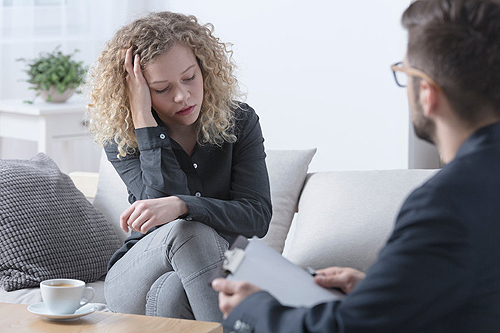-
How You Can Help Kids Overcome a Two-Year Buildup of Covid Anxiety
- Posted on February 22, 2022
- by admin
- in All Articles, NFSB Blog
- Comments Off on How You Can Help Kids Overcome a Two-Year Buildup of Covid Anxiety
 Two years into the pandemic, children continue to struggle with anxiety, triggered by what they see at home, at school, and in their social interactions. While parents typically do everything possible to shield their children from any type of serious danger, threat, or trauma, Covid has touched everyone on some level. Avoiding Covid has been virtually impossible.
Two years into the pandemic, children continue to struggle with anxiety, triggered by what they see at home, at school, and in their social interactions. While parents typically do everything possible to shield their children from any type of serious danger, threat, or trauma, Covid has touched everyone on some level. Avoiding Covid has been virtually impossible.“I’ve been able to see the whole trajectory of the pandemic from the beginning,” said Kelly Rivadeneyra (Master of Social Work), LCSW (Licensed Clinical Social Worker) at Nutley Family Service Bureau (NFSB). “When young children see their parents worry, and they see the measures taken to stop the spread of Covid, they start to understand the world isn’t as safe as they thought.”
Children tend to look to their parents in times of adversity and follow their lead. Parents are doing their best to respond appropriately, but it’s hard. Choose your cliché – these are unprecedented times, uncharted waters, etc…
The pandemic has been a lifechanging event that has many children wondering what else they should worry about, creating a snowball effect of anxiety. Children who receive inadequate or inappropriate support are especially prone to anxiety, which can lead to feelings of fear, uncertainty, hopelessness, and anger.
At the same time, school environments are different. Classrooms are arranged differently. Lunch time is different. Students are learning differently, often struggling to grasp concepts like they used to. This can contribute to an overall shift in a child’s social life.
For example, some parents are fine with their kids hanging out with friends. Other parents are still uncomfortable. The mixed signals can cause children to worry about getting sick and bringing Covid back to their families.
“Anxiety is anything you’re worried about that hasn’t happened yet,” Kelly said. “It serves a purpose. It allows us to be proactive and plan our responses to certain situations. But Covid has created a tug-of-war for children who struggle to balance their desire for normalcy with fear or concern about causing something bad to happen.”
Parents: Practice Positive Habits
The most important thing parents and caregivers can do to minimize anxiety in children is to better manage their own anxiety. Children are easily impacted by their environment. They are attuned to the feelings of the adults around them. Establish normalcy through routines and structure at home. Routines create a predictable feeling of safety by controlling what is within your control.“When children are following routines, they worry less about what will happen next,” Kelly said. “Making sure children are eating enough, eating together as a family, going to bed at the same time each night – they all contribute to a routine that can reduce the likelihood of anxiety.”
Although technology is part of our world and can help children stay connected with friends, limiting screen time can be helpful. By keeping screen time to a realistic timeframe, parents can prevent kids from getting caught up in what they see on social media and other platforms. For example, anxiety often results from comparing themselves to what others do and look like.
Instead, look for opportunities to connect as a family. Play games, spend time outdoors, or watch a movie together. There will be disagreements and conflict, but it’s important to watch tone, volume, and language. Send a message to children that you can disagree in a calm, respectful way.
Watch for Warning Signs of Anxiety and Take Action Right Away
Common symptoms of anxiety in children include but are not limited to:- Behavioral changes, such as mood swings, aggression, temper tantrums, and crying spells
- Bedwetting
- Headaches and stomach aches
- Constant worrying or negative thoughts
- Decreased or increased appetite
- Difficulty concentrating
- Lack of energy
- Difficulty sleeping
- Struggling with or refusing to go to school
- Social withdrawal and isolation
If you see a negative change in a child, don’t wait until a crisis to do something. There’s no downside to acting early. Mental health issues should be addressed as soon as you notice them, just like you would with a child’s physical health.
“You don’t have to shoulder the burden yourself,” Kelly said “Do what you can, but don’t feel like you have to figure everything out on your own. Because the therapy is being normalized, kids have more of an open mind than older generations. Parents are telling me that their kids are asking for help. They want to go to therapy. This is such an important step for kids, especially those who are dealing with Covid-related anxiety.”
If you’ve noticed changes in a child at home, at school, or in their social relationships, we encourage you to seek help and find out if the child is struggling with anxiety. Call The Center at NFSB at 973-667-1884.
If you enjoyed this article please consider sharing it!

















